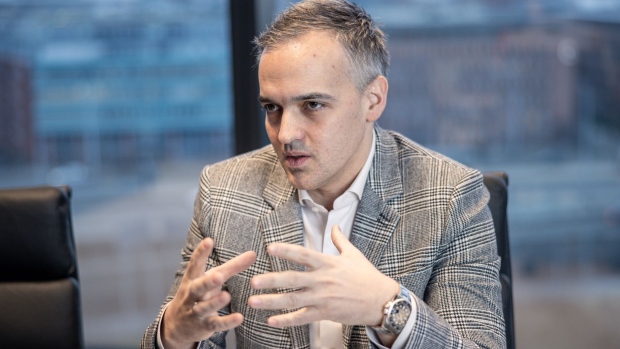Jan 31, 2023
Hungarian Refiner Mol Eyes Alternatives to Russia Pipeline
, Bloomberg News

(Bloomberg) -- Hungarian refiner Mol Nyrt is in talks to use Croatia’s oil pipeline network as it works to wean itself off Russian supplies, according to a senior company executive.
“Our intention at the moment is to clearly develop the alternative possibilities,” Peter Ratatics, Mol’s 40-year-old executive vice president for consumer services, said in an interview on Friday. “In a conflict zone, how long can you have a stable supply in a pipeline that’s always in danger?”
The Mol executive’s words indicate an effort to limit Hungary’s energy dependence on Russia amid the war in Ukraine — even as Premier Viktor Orban has locked the country into a 15-year gas contract with Gazprom PJSC and works with Rosatom Corp. to expand the nation’s sole nuclear power plant.
Hungary — like much of eastern Europe — is reliant on Russia’s Druzhba pipeline network, which runs through Ukraine and has been hampered by occasional technical problems and tainted crude in recent years. For now, Mol’s only alternative is oil transported by Croatia’s Jadranski Naftovod DD, known as Janaf.
The refiner earlier this month signed a deal with Janaf for transport and storage that expires March 31. It’s now looking for a long-term pipeline operation and development agreement, though pricing is still a point of contention and volumes may not be sufficient to make up for Russian imports, according to Hungary’s government.
“The Druzhba pipeline serves Hungary, Slovakia and basically half of Czech Republic, something the Adriatic one can’t do, so that means someone either wouldn’t have sufficient crude oil or everyone would get less,” Hungarian Foreign Minister Peter Szijjarto said in an interview published Tuesday on Origo news website.
Mol has seen its profit soar last year after Orban secured an exemption for the company from under the European Union’s oil sanctions, imposed on Russia over its invasion of Ukraine. Those earnings are now financing Hungary’s energy subsidies after the government raised its windfall tax on Russian crude refining to 95% from 40% last month.
The EU has banned seaborne shipments of Russian crude since Dec. 5 and has imposed limits on shipments of Russian fuels from Feb. 5.
While the restriction may have little effect on Mol’s fuel stations in Hungary, Serbia and Romania, it may hamper the company’s shipments to Austria from its refinery outside of Bratislava, Slovakia, Ratatics said. The market has generally prepared for the restrictions by building up stockpiles but unexpected refinery outages may still roil supplies, he noted.
Ratatics said he doesn’t expect the bloc to expand its oil embargo while the company upgrades its refineries to process crude grades other than Russian Urals. The works, which include an expansion of storage capacity, should take about two years and cost roughly $500 million once a decision is made on investments. Mol is also seeking EU funding for the switch.
(Updates with foreign minister’s comment in sixth paragraph. An earlier version corrected the age of Mol’s vice president.)
©2023 Bloomberg L.P.





